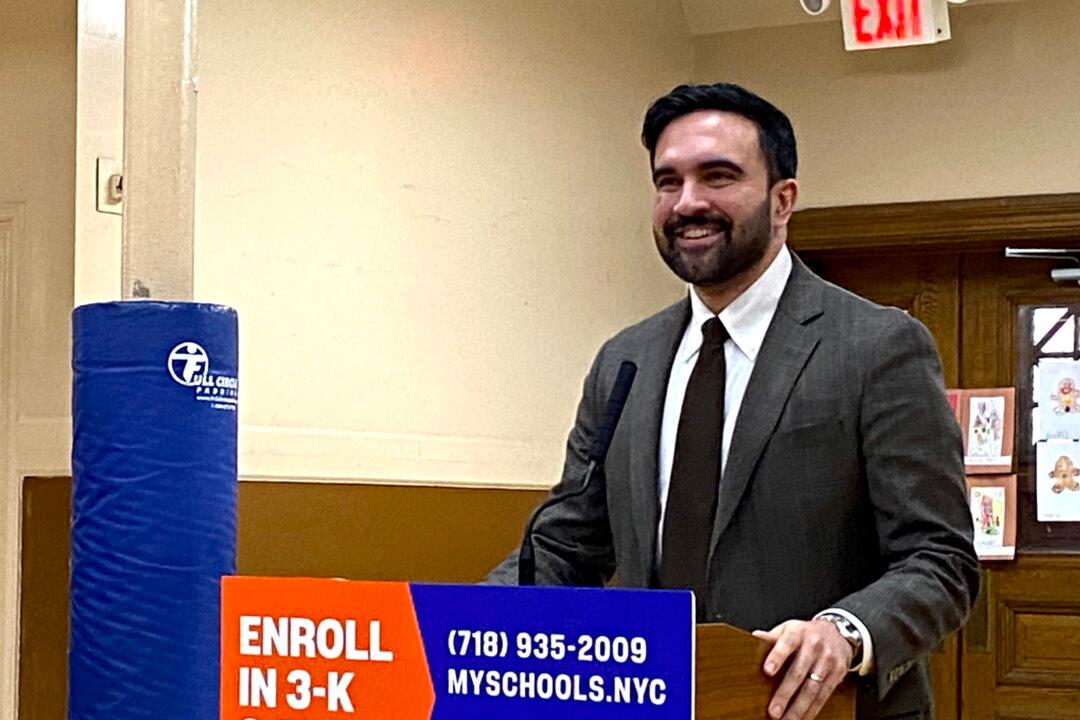Mayor Bill de Blasio announced he is ending the yearly “budget dance,” between the mayor and City Council.
“We are going to begin the process of putting an end to the cynical ‘budget dance.’ The game of cuts and restorations that have so long marred the city budget process,” de Blasio said at a press conference where he released his preliminary budget for 2015.
De Blasio said his budget would operate on the principles of honesty and transparency.
Under former Mayors Bloomberg and Giuliani funding for social services, firehouses, or libraries—items that members of City Council knew were important to their constituents—would be routinely cut. City Council members would then fight to restore the funding, but they could only restore it for one year. So the cycle would repeat the next year.
Some have called it a budget management tactic for the mayor, who must by law ensure the budget is balanced. Cuts to such services meant City Council members would focus on restoring cuts, rather than adding new funding.
Before leaving office Bloomberg restored funding for fiscal 2015 through 2017 for many of the services and programs subject to such cuts. Those he did not re-fund were included in de Blasio’s preliminary budget released Tuesday, including $59 million for 20 fire companies as well as $10 million to fund the five borough presidents and the public advocate.
Such cuts meant that council members focused on a very small part of the budget, $300 million–500 million in funding they felt was essential for their district. This meant that in budget negotiations the most important thing a council member could do “is make sure youth programs, libraries, and senior centers are all restored in [their] neighborhood,” communications director at the Independent Budget Office, Doug Touretsky said.
“The impact was that the council never really engaged with the big issues in the way it potentially could have,” said Maria Doulis, director of City Studies at the Citizens Budget Commission.
“Perhaps now that there won’t be this fighting about firehouses and child care spots, the council can engage in a more thorough way with the real drivers of budget growth,” Doulis said.
“It appears that that dance is over, perhaps a new dance will be set, with a new set of moves,” Touretsky said.




